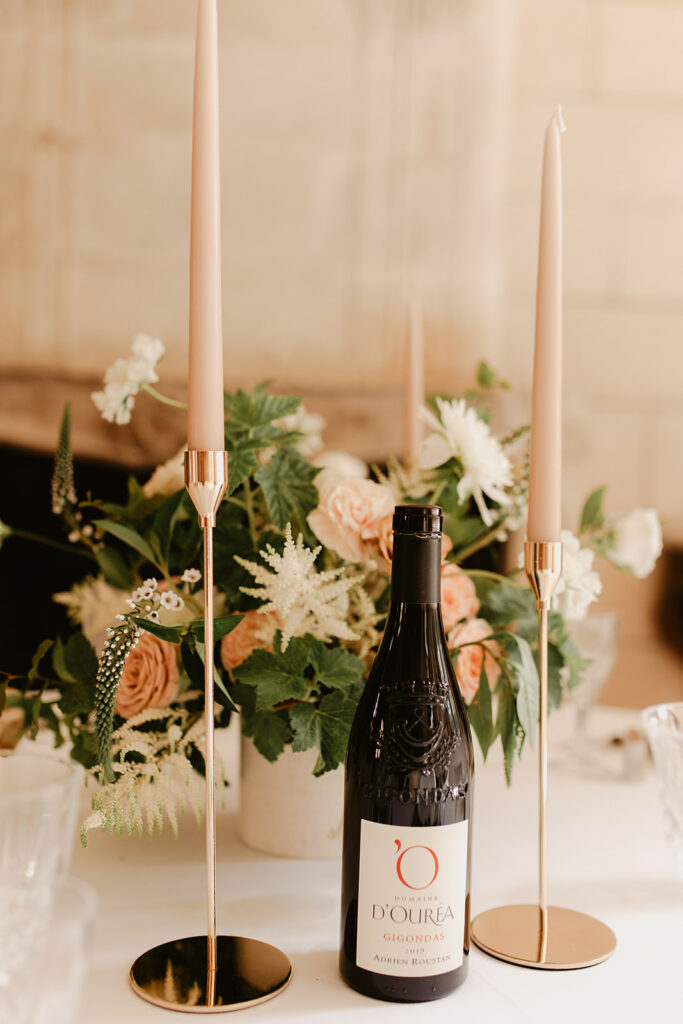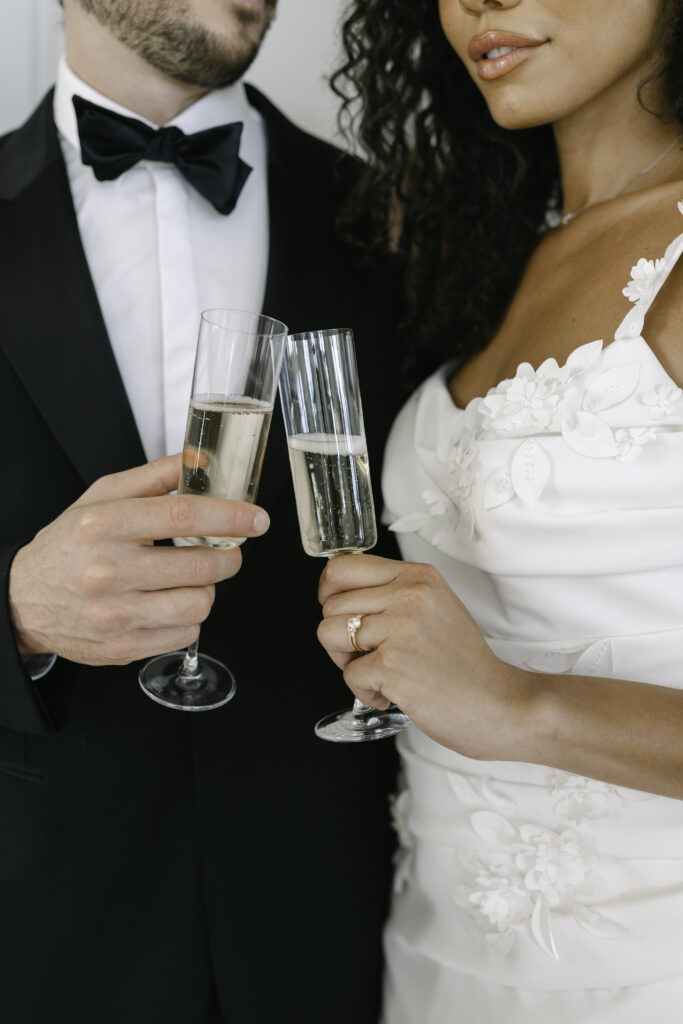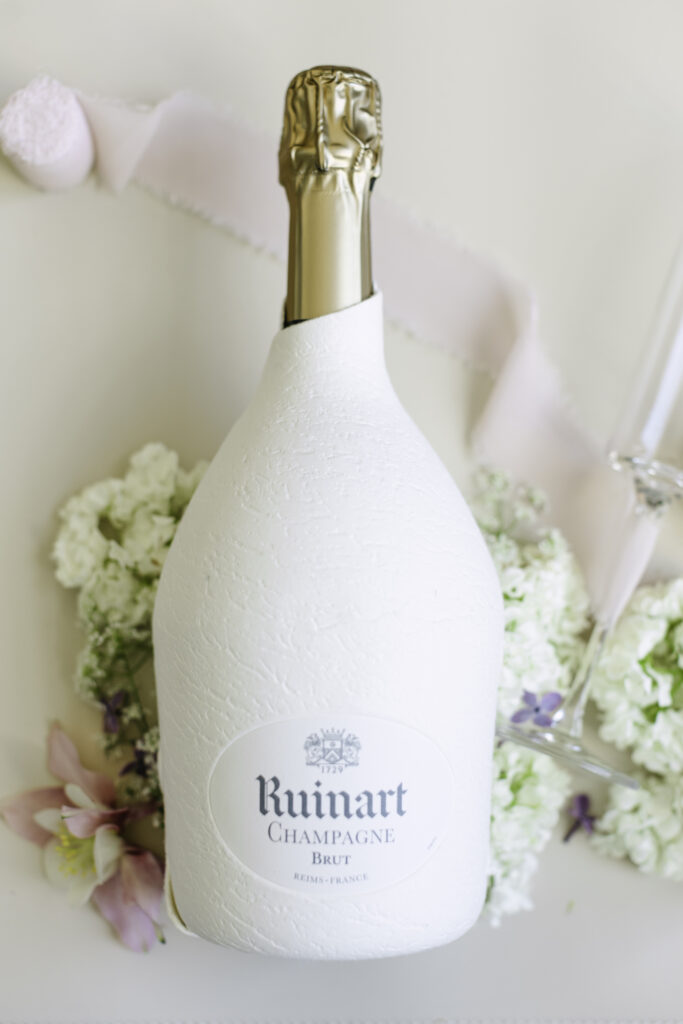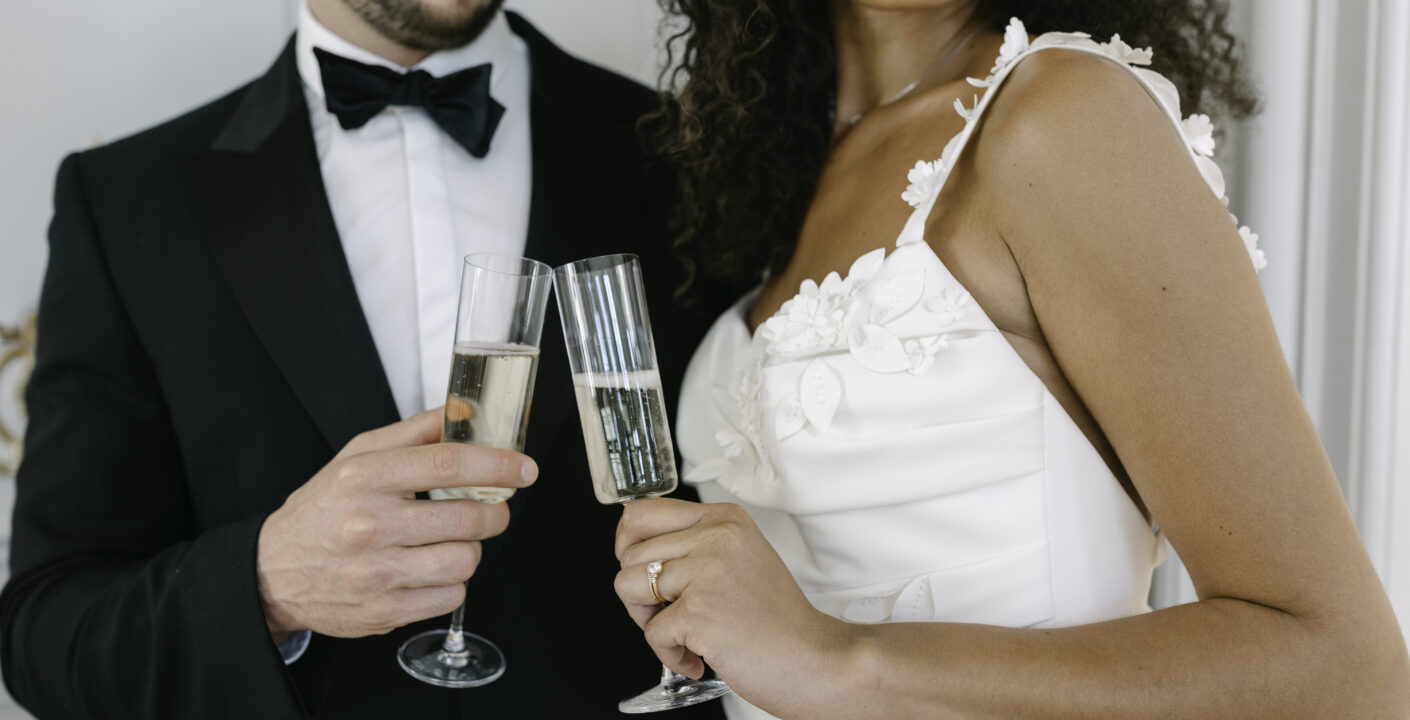How to Estimate Drink Quantities for Your Wedding in France: From Water to Champagne
One of the most common questions couples ask when planning their wedding in France is: “How many bottles do we actually need?”
Drinks are more than refreshments — they set the tone, bring guests together, and reflect the French art de vivre. But getting the quantities right can feel daunting. Too little, and you risk running out; too much, and you overspend.
This guide will help you calculate the right balance of water, soft drinks, wine, champagne, and spirits, while adapting to your guests, your season, and your celebration style.
The Main Types of Drinks to Plan For
A well-planned wedding bar includes both alcoholic and non-alcoholic options:
Water: still and sparkling — essential throughout the day.
Soft drinks & juices: sodas, fruit juices, mocktails — important for younger guests and non-drinkers.
Wine: central to French weddings, often red and white, sometimes rosé in summer.
Champagne or sparkling wine: symbolic of celebration, especially for cocktail hour and dessert.
Spirits & digestifs: optional but traditional in France, especially late at night (cognac, whisky, calvados, Armagnac).
💡 Planner’s tip: Always ensure that non-alcoholic choices feel just as festive as alcoholic ones — sparkling juices or mocktails are a great way to include everyone.
Classic Quantity Guidelines
The easiest way to calculate drinks for your wedding is to think in glasses per person, using 6 glasses per bottle as a standard measure for both wine and champagne.
Water: 1 liter = ~4 glasses. Plan at least 4–5 glasses per guest (½ still, ½ sparkling).
Soft drinks & juices: 1 liter = ~4 glasses. Plan 2–3 glasses per guest, more in summer or family-friendly weddings.
Champagne: 1 bottle = 6 glasses. For cocktail hour and the toast, plan 2 glasses per guest.
Wine: 1 bottle = 6 glasses. For dinner, plan 3–4 glasses per guest (about ¾ bottle), split between red and white.
Spirits/digestifs: 1 bottle = 20–25 servings. If offered, count 1 small glass per 2–3 guests.
Factors That Influence Quantities
Quantities are never “one size fits all”. They depend on:
Season & weather: Summer weddings call for more rosé, beer, and cold drinks. Winter weddings lean toward red wine, mulled drinks, and digestifs.
Guest profile: Younger crowds may prefer cocktails and beer, while older guests often drink more wine and water.
Duration of the celebration: A five-hour reception needs less than an all-night party ending at sunrise.
Cultural background: US guests may expect a cocktail hour with mixed drinks; French guests will expect wine and champagne.
💡 Planner’s tip: Ask your caterer or venue about average consumption — they know local habits better than anyone.



©Alchemia wedding / ©Milo photographie
Matching Drinks with Wedding Moments
Each moment of your wedding has its own “drink identity”:
Rehearsal dinner: Keep it convivial and lighter — wines, beer, soft drinks, and water. Avoid overloading guests before the big day.
Cocktail hour (vin d’honneur): This is when champagne flows the most. Plan sparkling wine, water, and juices. Beer, rosé or signature cocktails can also add a fun touch.
Wedding dinner: Wines paired with the menu are the highlight. Red with meat, white with fish for summer. Champagne often returns with dessert. Water on every table is a must.
After-party: Time for cocktails, spirits, digestifs — plus plenty of water and soft drinks to keep guests comfortable.
Brunch or day-after lunch: A lighter, fresher mood — juices, coffee, tea, sparkling water, rosé, or crisp white wines.
💡 Planner’s tip: Don’t underestimate coffee and tea at the brunch — they’re often the first thing guests look for after a long night of celebration.
Practical Tips to Avoid Mistakes
Over-order water: It’s the one thing you’ll never regret having too much of.
Check corkage fees: Some caterer charge if you bring your own bottles.
Adapt to your menu: A seafood dinner calls for more white wine, a barbecue for more beer or rosé.
Include festive non-alcoholic options: Guests who don’t drink alcohol should feel equally included.
Better to have a little extra than to run short: Running out of champagne during the cocktail hour is the mistake couples regret most.
Conclusion
Drinks are not just a logistical detail — they are part of the celebration, the mood, and the guest experience. By planning quantities carefully across water, soft drinks, wines, champagne, and spirits, and adjusting for season, weather, and guest profile, you’ll ensure that everyone feels cared for.
And always remember: Alcohol should be consumed responsibly and in moderation.

About the Author

Marie-Svetlana Kadjo is the founder of a wedding planning agency dedicated to curating emotionally rich, detail-driven, and culturally mindful celebrations in Paris and the Loire Valley.
With over 13 years of experience leading teams and organizing complex projects, and serving as a wedding planner since 2016, she guides couples through every stage of their destination wedding journey with grace, precision, and intention.

